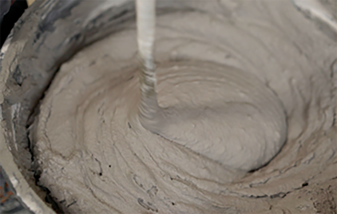
Дек . 30, 2024 01:27 Back to list
hydroxyethylcellulose powder
Hydroxyethylcellulose Powder An In-Depth Look
Hydroxyethylcellulose (HEC) is a non-ionic, water-soluble polymer derived from natural cellulose. Known for its versatile properties, HEC powder is widely utilized across various industries, most notably in pharmaceuticals, cosmetics, food production, and construction. This article aims to explore the characteristics, applications, and benefits of hydroxyethylcellulose powder, providing insights into its relevance in today’s market.
Chemical Structure and Properties
Hydroxyethylcellulose is synthesized through the etherification of cellulose. The process involves the reaction of cellulose with ethylene oxide, resulting in a polymer with hydroxyethyl groups. This modification enhances the solubility of cellulose in water while retaining its inherent properties. HEC is characterized by a white, odorless powder with excellent film-forming capabilities, high viscosity, and good thermal stability. Its viscosity can be adjusted by varying the degree of substitution and molecular weight, making HEC highly customizable for specific applications.
One of the standout properties of HEC is its ability to form gels and thick solutions at various temperatures. This makes it ideal for applications in products that require a stable viscosity under different conditions. Additionally, HEC exhibits pseudoplastic behavior, which means its viscosity decreases under shear stress. This property allows for easier application of products that contain HEC, such as creams or gels.
Applications
1. Pharmaceuticals In the pharmaceutical industry, hydroxyethylcellulose serves multiple purposes. It is often used as a thickening agent in topical formulations, providing a smooth texture to ointments and creams. Its film-forming properties help create a protective barrier on the skin, enhancing the delivery of active ingredients. Moreover, HEC acts as a stabilizer for suspensions and emulsions, ensuring uniform distribution of the therapeutic agents.
2. Cosmetics The cosmetic industry benefits immensely from HEC due to its ability to enhance the texture and stability of various formulations. It is commonly found in lotions, creams, shampoos, and conditioners. HEC’s water retention properties contribute to skin hydration, making it a popular choice in anti-aging products. Moreover, its compatibility with various additives allows formulators to create innovative cosmetic solutions.
hydroxyethylcellulose powder

3. Food Industry In the food sector, hydroxyethylcellulose serves as a thickener and stabilizer in sauces, dressings, and dairy products. It improves the mouthfeel of food products and can extend shelf life by preventing the separation of ingredients. HEC is also utilized in gluten-free products to enhance texture and maintain moisture.
4. Construction Hydroxyethylcellulose is increasingly popular in the construction industry, particularly in tile adhesives, skim coats, and other building materials. Its ability to retain water and improve workability allows for better bonding and smoother application of materials. Additionally, HEC can help control the drying time of mortar and grout, enhancing the overall performance of construction products.
Benefits
The use of hydroxyethylcellulose powder offers numerous benefits across its various applications
- Versatility HEC’s ability to adapt to a wide range of formulations makes it a valuable ingredient in numerous products. - Non-Toxic As a natural derivative of cellulose, HEC is non-toxic and considered safe for use in food and cosmetic products, complying with regulatory standards. - Eco-Friendly Hydroxyethylcellulose is biodegradable, making it an environmentally friendly choice compared to synthetic polymers. - Enhanced Performance The inclusion of HEC in formulations can lead to improved texture, stability, and overall product performance.
Conclusion
Hydroxyethylcellulose powder is a remarkable ingredient with a wide range of applications across various industries. Its unique properties, including water solubility, thickening capabilities, and film-forming abilities, make it indispensable in pharmaceuticals, cosmetics, food, and construction. As industries continue to seek sustainable and effective solutions, HEC stands out as a versatile and eco-friendly option, enhancing product formulations and contributing to better consumer experiences. Understanding the myriad uses and benefits of hydroxyethylcellulose will enable manufacturers to harness its potential and innovate across diverse markets.
-
Versatile Hpmc Uses in Different Industries
NewsJun.19,2025
-
Redispersible Powder's Role in Enhancing Durability of Construction Products
NewsJun.19,2025
-
Hydroxyethyl Cellulose Applications Driving Green Industrial Processes
NewsJun.19,2025
-
Exploring Different Redispersible Polymer Powder
NewsJun.19,2025
-
Choosing the Right Mortar Bonding Agent
NewsJun.19,2025
-
Applications and Significance of China Hpmc in Modern Industries
NewsJun.19,2025







